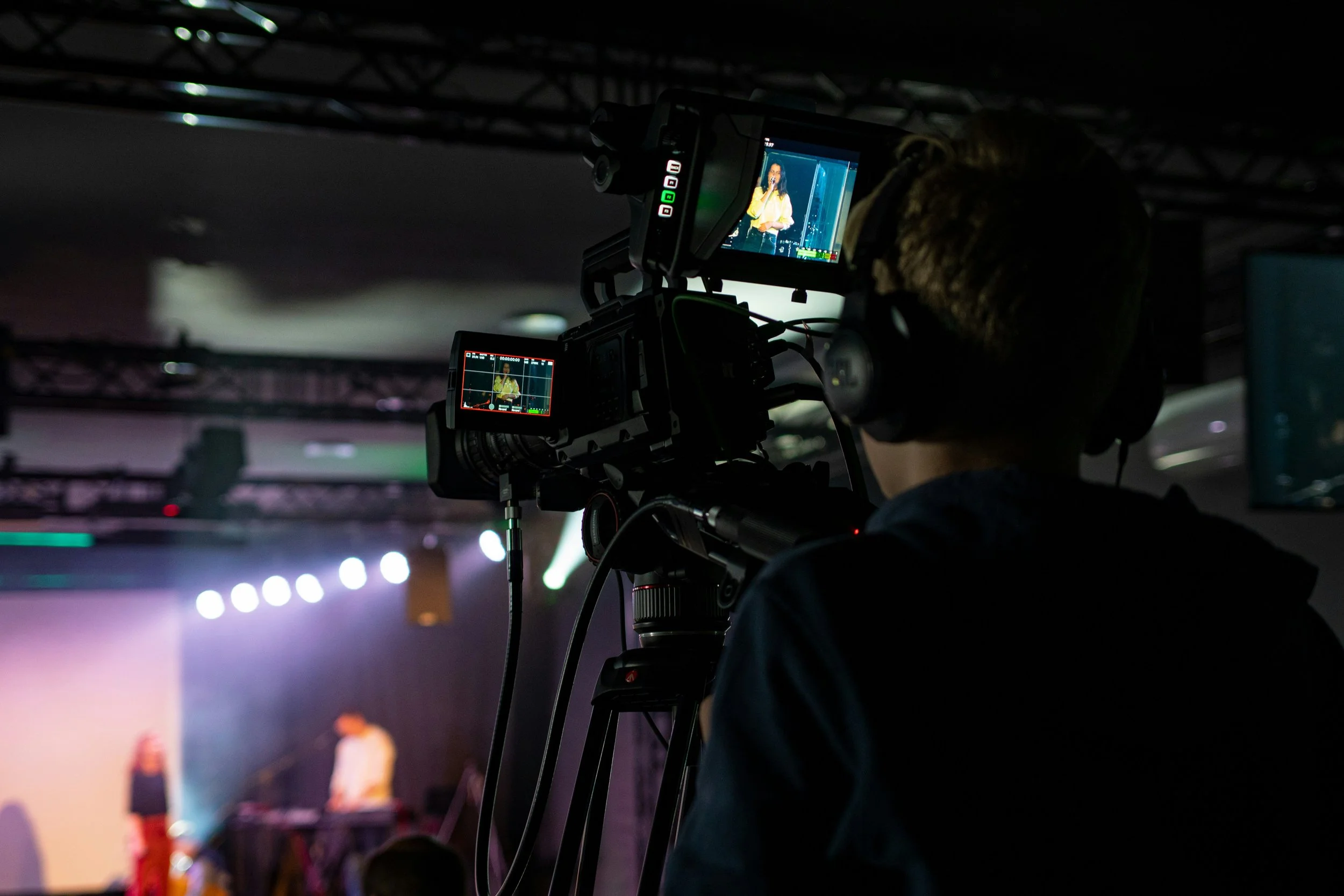
Blog

The impartiality of Question Time: An analysis of panellists in 2025
The BBC’s weekly debate political programme, Question Time, has long been a magnet for controversy. And 2025 has been no different, with critics regularly questioning its impartiality, most often because panels do not reflect a fair balance of perspectives from either the right or left of politics.
In this blog, we break down the details of who appeared on Question Time in 2025. This will provide an evidence-based picture of how the programme interpreted impartiality according to the editorial selection of guests over the last year. This is a continuation of an ongoing project led by Dr Matt Walsh tracking Question Time guests since 2014, which was published in Journalism: Theory, Practice and Criticism at the end of 2025.

Are broadcasters reflecting multi-party politics in the UK? An analysis of BBC News at Ten and ITV News at Ten in 2025
Over the last year, support for the main two political parties – Labour and Conservative – has collapsed and a new era of multi party politics has begun. Reform UK has now taken a sustained and commanding lead in the polls, while the latest You Gov survey shows the Greens have overtaken the Liberal Democrats, and are currently level with the Conservatives and not far behind Labour.

Contrasting media coverage of the Caerphilly by-election in Wales with UK-wide news: how did broadcasters balance parties and leaders?
In UK-wide media, the Caerphilly by-election result was framed around Reform UK’s defeat, the terminal decline of Labour in Wales, and the implications for Keir Starmer’s UK government in Westminster. By contrast, Plaid Cymru, whose candidate Lindsay Whittle won the seat, did not feature as prominently in coverage. The result was largely seen through the prism of power shifts in Westminster, and the prospect of Reform UK’s Nigel Farage becoming the next Prime Minister. Not long after the result was announced, the focus on Westminster politics was acknowledged by BBC Wales Politics journalist, Teleri Glyn Jones, when she asked Lindsay Whittle: “We’ve grabbed you as the winner of this but actually the rest of this room’s media is going to the person who came second, Llŷr Powell from Reform. What do you think that tells us?”.

How broadcasters covered the final week of the Caerphilly by-election
Ahead of the Caerphilly by-election, we examined how BBC and ITV – two major sources of news in Wales – reported the final week of the campaign on TV and online between October 15 and 22. This included monitoring coverage on BBC Wales Today at 6.30pm and ITV Wales at 6pm on TV, the BBC Wales and ITV Wales politics home news pages online, as well as the UK network bulletins on BBC and ITV News at Ten on TV.

New opinion poll shows public think broadcasters should balance airtime for political parties more equally
Broadcasters need to work harder to ensure they balance airtime for political parties on TV and radio news, according to a new You Gov poll carried out for Cardiff University. While Reform is leading the polls, several other parties are neck-and-neck in the latest surveys. This research shows the public wants impartial coverage that doesn’t favour one party over another.

The impartiality of broadcasters in Wales: An analysis of BBC and ITV news coverage of the Caerphilly by-election
On 15 October 2025, the BBC hosted six of the eight candidates standing in the Senedd Caerphilly by-election the following week. This included figures from Labour, Conservative, Reform, Plaid Cymru, the Liberal Democrats and the Greens. The prime time hour-long TV programme gave all the major parties the platform to pitch their policies as well as the opportunity for Nick Servini, the BBC presenter, to scrutinize their responses and a live audience to hold the candidates to account. The BBC also had a live online blog monitoring what was said, with a team of journalists fact-checking claims. While the blog did not appear to be widely used by the public (attracting in the range of 700 to 800 viewers during the programme), it did put some debating points into useful context.

New opinion polling reveals strong support for rules on broadcast impartiality but raises questions about the scrutiny paid to political parties
Over recent months, debates about the impartiality of UK broadcasters have intensified. From anger about the reporting of conflicts in the Middle East, to concerns about the partisanship of the news channel, GB News, and widespread complaints about how much airtime political parties receive, particularly Nigel Farage’s Reform UK. At the same time, support for the UK’s two main parties – Labour and Conservative – has collapsed, creating a new challenge for broadcasters to decide how far they should weight political coverage to, for example, reflect the latest trends in public opinion or represent the number of MPs each party has sitting in Parliament.

Complaints vs breaches: An analysis of how often BBC and Ofcom find broadcasters have broken rules on impartiality
On 25 September 2025, the BBC’s Executive Complaints Unit (ECU) published its ruling on the livestream of a Glastonbury performance by punk-rap duo Bob Vylan that featured alleged hate speech.. The broadcast generated more than 5,000 complaints, which were considered under the BBC’s editorial guidelines on harm and offence, incitement, and—crucially for our project—impartiality.

Party political coverage of third parties and their leaders: A comparative assessment of TV news coverage of Reform UK and the Liberal Democrats
Over recent weeks and months, questions have been raised about the extent to which Reform UK – and, notably, its leader, Nigel Farage – have appeared in broadcast media coverage. On 3 September 2025, for example, the BBC issued a statement defending its impartiality and rejected complaints that Farage had received too much airtime. The UK’s main public service broadcaster justified its reporting by pointing out that Reform attracted a large share of votes at the last general election, had won the most seats at the 2025 English regional and local elections, and had been riding high in the opinion polls over a sustained period. The BBC also noted that “Many political analysts across the media, with different political perspectives, report that Reform UK are ‘making the political weather’ – in other words, the reactions and policies of the other political parties can only be properly understood in the context of knowing what is happening with Reform UK and its increased level of support.”

Interpreting impartiality: An analysis of politicians appearing on the UK’s leading debate and panel programmes
Political debate programmes, such as the BBC’s Question Time and Any Questions, make a significant contribution to the democratic health of the UK. They allow the public to directly question politicians from different parties and hold them to account. Likewise, broadcast programmes that feature panels of political guests, including the BBC’s Sunday with Laura Kuenssberg, ITV’s Peston and Sky News’s Sunday Morning with Trevor Phillips, provide opportunities to scrutinise the policies of different political parties in both debate and interview formats.

Website Launch
In July 2025, the Enhancing the Impartiality of Political News project officially began. Led by Professor Stephen Cushion and Dr Matt Walsh at Cardiff University’s School of Journalism, Media and Culture, our aim is simple but important: to understand what impartial journalism should look like in today’s fast-changing media landscape.
